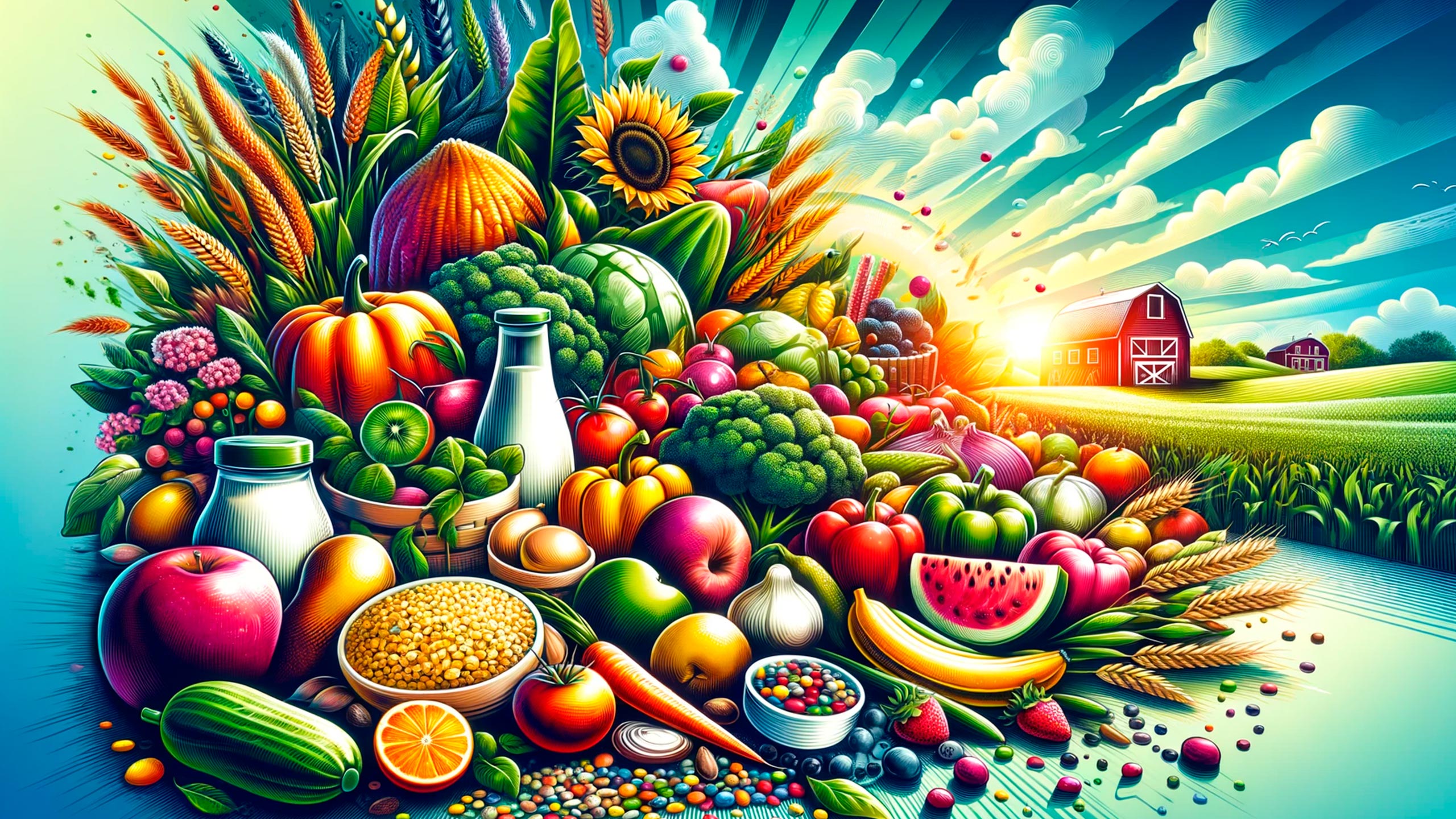Introduction: Unpacking the World of Organic and Sustainable Eating
The intersection of organic foods and sustainable eating practices marks a critical juncture in our approach to health and environmental stewardship. Organic agriculture goes beyond mere food production; it embodies a holistic philosophy that intertwines nutritional content, ecological balance, and ethical farming practices. In this exploration, we delve into how organic foods, often characterized by their absence of synthetic pesticides and GMOs, are not just a health choice but a cornerstone in the broader sustainable food practices. The rise of organic foods has been paralleled by a growing awareness of the need for sustainable diets—ones that not only nourish us but also minimize environmental impact. This integration of organic methods with sustainability goals offers a promising pathway towards a healthier planet and populace.
Nutritional Advantages of Organic Foods
The nutritional profile of organic foods has sparked considerable interest, highlighting their potential role in a healthier diet. Studies, like those reported by Harvard T.H. Chan School of Public Health, suggest that organic produce may have higher levels of certain antioxidants and nutrients compared to their conventionally-grown counterparts. This difference is attributed to the organic farming practices, which emphasize soil health and natural cultivation methods. As explained by Mayo Clinic, these practices, devoid of synthetic chemicals, may lead to the production of foods richer in vitamin C, minerals, and other beneficial compounds. Furthermore, as noted in a study published by the British Journal of Nutrition, organic dairy and meat products often contain higher levels of omega-3 fatty acids, a result of livestock being pasture-fed. This shift towards organic consumption is not only a nutritional choice but also aligns with eco-friendly food choices, weaving the narrative of personal health with planetary well-being. The pursuit of a diet rich in organic foods opens a gateway to enhanced health benefits and a step towards sustainable dietary practices.
Organic Agriculture and Environmental Impact
Organic agriculture stands at the forefront of combating environmental challenges. By embracing natural cultivation practices and shunning synthetic additives, organic farming plays a pivotal role in preserving soil health and reducing erosion. This approach to agriculture is instrumental in mitigating climate change, as healthy soils are key in carbon sequestration. The practice of organic farming not only supports the ecosystem through biodiversity but also ensures sustainable use of resources. The environmental benefits extend beyond the farm, influencing sustainable food systems globally. As consumers increasingly gravitate towards organic products, the ripple effect on environmental sustainability becomes more pronounced, highlighting the interconnectedness of our food choices and the health of our planet.
Balancing Organic and Conventional Farming for Sustainability
In the quest for sustainable agriculture, a balance between organic and conventional farming methods is pivotal. While organic farming excels in promoting soil health and reducing chemical use, conventional methods offer higher yield efficiency. The integration of both methods can lead to optimal sustainability. Organic practices can enrich soil and enhance biodiversity, while conventional farming can address immediate large-scale food demands. The key lies in adopting the best practices from both worlds—using technology and innovation from conventional farming while adhering to the ecological principles of organic agriculture. This hybrid approach can potentially increase food production sustainably, meeting the global food demand without compromising the environment. By strategically combining these farming methodologies, it’s possible to forge a path towards a more sustainable and resilient food system.
Questions and Answers: Common Queries About Organic Foods
Q: What defines a food as organically produced? A: Foods labeled as eco-friendly are produced adhering to standards that typically forbid synthetic pesticides and GMOs.
Q: Are foods grown naturally more nutritious? A: Research suggests that products grown without synthetic chemicals may have higher levels of certain nutrients and antioxidants.
Q: Does eco-conscious farming help the environment? A: Yes, this approach reduces pollution and promotes biodiversity and soil health.
Q: Is food from eco-conscious farming free from all pesticides? A: Farming with an emphasis on natural processes uses fewer and more natural pesticides compared to conventional methods.
Q: Can farming with natural methods feed the global population? A: It’s a subject of debate, but combining these methods with other sustainable practices might be key.
The Role of Plant-Based Diets in Sustainable Eating
The surge in plant-based diets plays a crucial role in crafting sustainable eating habits. These diets, centered around vegetables, fruits, whole grains, and legumes, significantly reduce the environmental footprint compared to meat-heavy diets. A key aspect of sustainability is the reduced resource intensity—plant-based foods generally require less land, water, and energy to produce. Moreover, such diets align with the principles of organic agriculture, often emphasizing minimally processed, eco-friendly food choices. The health benefits of plant-based diets are well-documented, ranging from lower risks of heart disease to improved weight management. Emphasizing plant-based nutrition also resonates with ethical considerations of food production, addressing animal welfare and reducing carbon emissions. Transitioning to a plant-based diet isn’t just a personal health choice; it’s a step towards a more sustainable future for our planet, echoing the ethos of organic and environmentally conscious living.
Choosing Sustainable Foods: Practical Tips and Sources
Selecting sustainable foods involves more than just opting for organic labels. It’s about making choices that positively impact the environment and promote sustainable agriculture. First, prioritize locally sourced produce to reduce transportation emissions. Farmer’s markets and community-supported agriculture (CSA) programs are excellent sources for this. Secondly, choose seasonal foods to lower the energy required for growing and storage. Another key aspect is reducing meat consumption, particularly beef, due to its high environmental cost. Embrace a plant-based diet when possible, focusing on whole foods like vegetables, fruits, and grains. Lastly, minimize food waste by planning meals and properly storing leftovers. These practices collectively contribute to a sustainable food system, reflecting a commitment to eco-friendly and ethical eating.
Conclusion
The journey towards organic and sustainable eating is pivotal for our health and the planet’s wellbeing. Embracing organic foods and sustainable dietary practices serves as a powerful tool against environmental degradation and promotes holistic wellness. The future of food consumption hinges on this balance—integrating nutritional, environmental, and ethical considerations. As individuals and communities increasingly adopt these principles, we forge a path towards a more sustainable and resilient food system. Ultimately, our food choices today are a testament to our commitment to future generations, ensuring a healthier, greener world.



